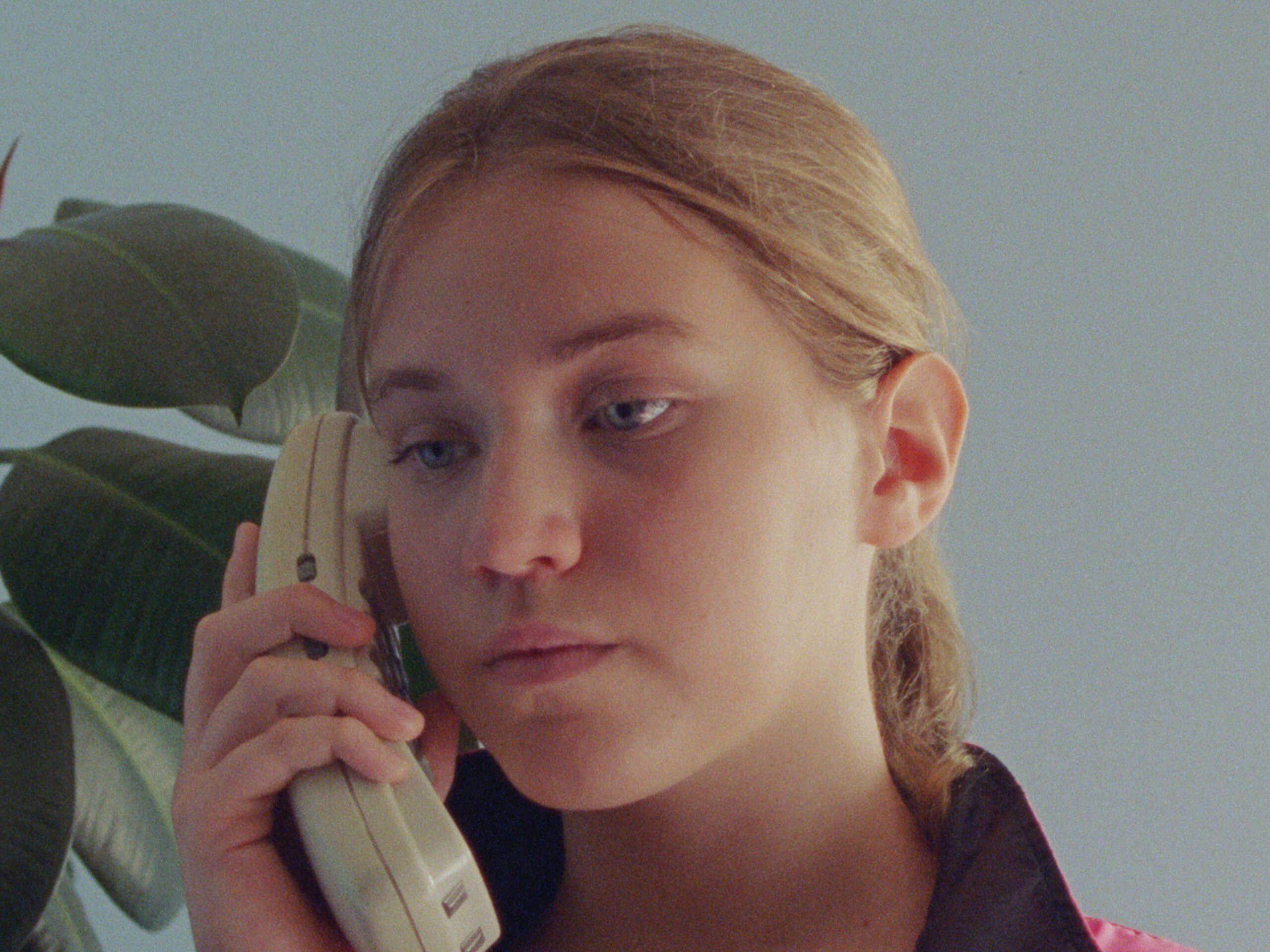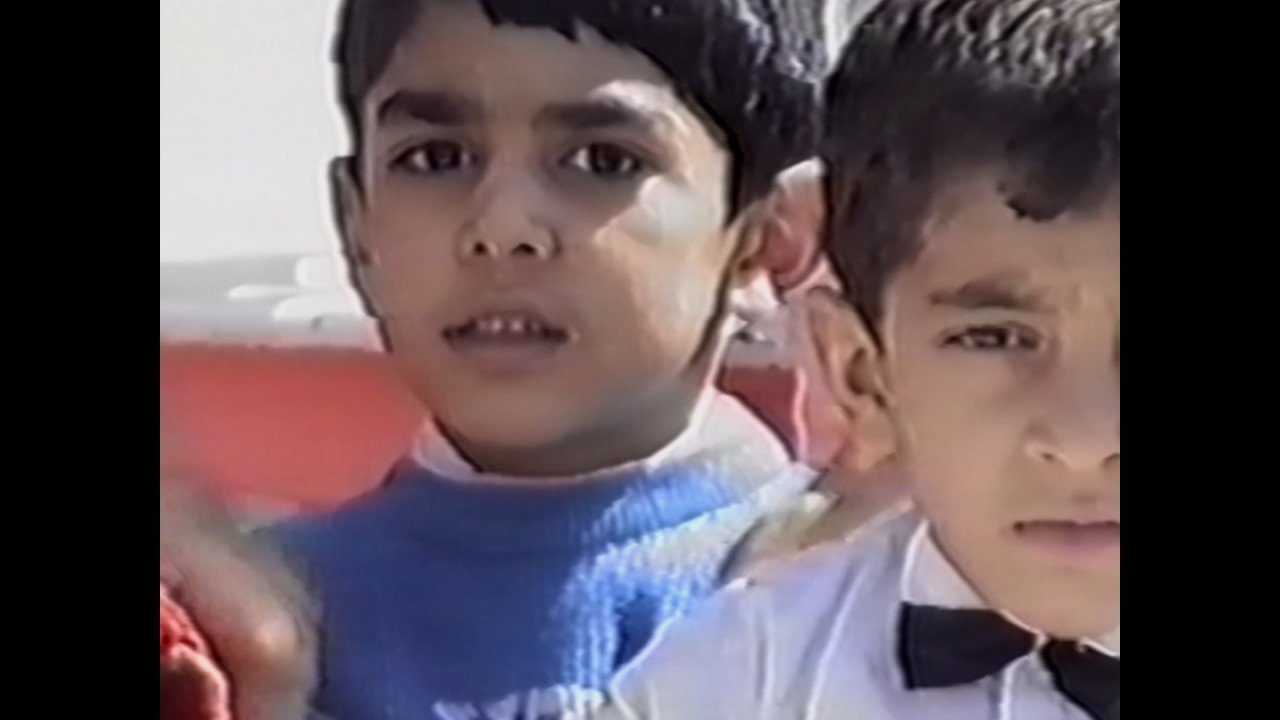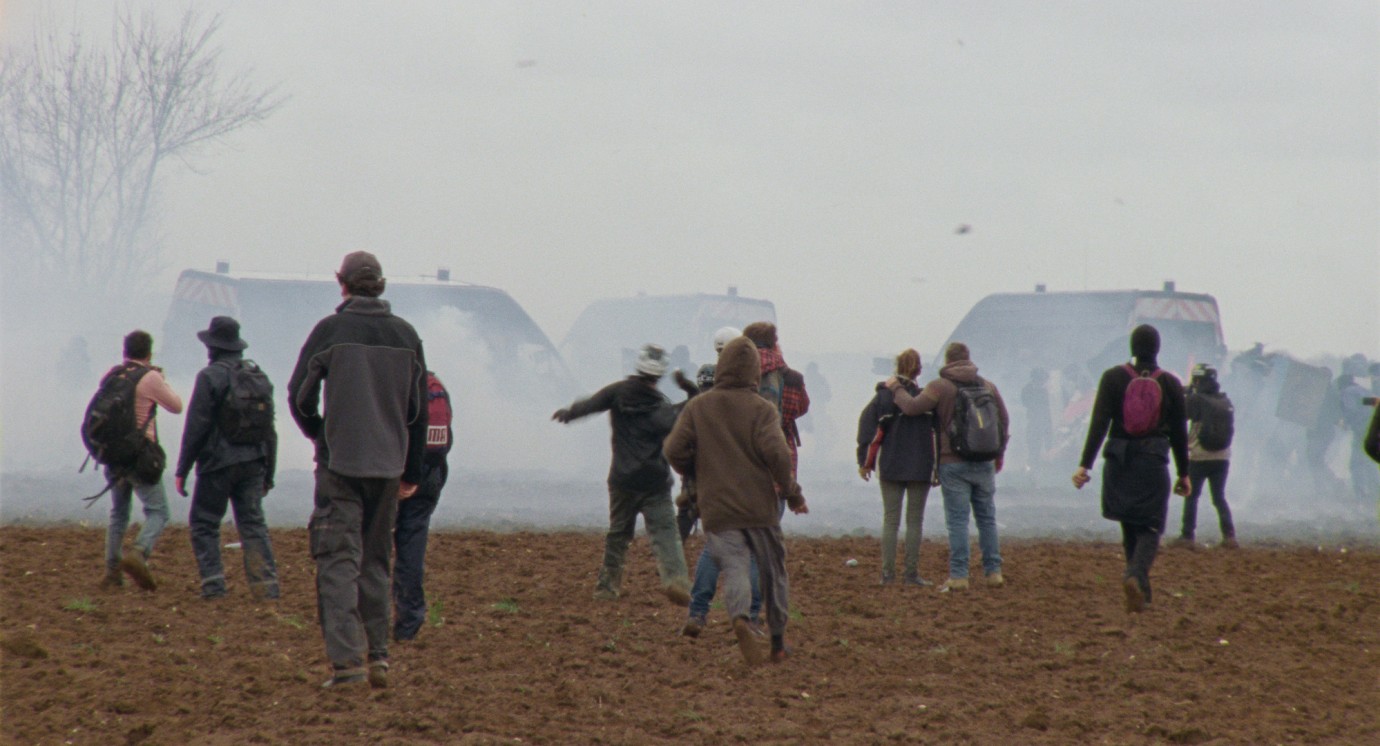Major Film Discoveries of 2024
So many films every year, so little time. Picture this: at any given moment, even as you’re reading these lines, millions of people are watching movies. At the cinema, in a park or public square, at home, on their TV or phone. They’re watching commercial films, “art films”, documentaries, or animated movies. This isn’t just a striking image with which David Bordwell, Kristin Thompson, and Jeff Smith open their volume Film History: An Introduction, but also a testament to the importance and influence film has held over the past hundred years. How do we navigate through so many titles every year? How do we avoid being swept away only by those that create buzz and hype? And how can we ensure we don’t miss films that might leave a lasting impact on our lives?
We asked film critics and local festival programmers to share with us some of the treasures they’ve discovered this year. These are titles they fell in love with during their festival rounds – hidden gems or works by filmmakers who continue to surprise. A small list of major revelations that are worth discovering.
*
Viet and Nam (dir. Truong Minh Quy) – World premiere in the Un Certain Regard section, Cannes 2024

Despite appearances, discoveries in this field become increasingly rare, and thus, all the more precious. After years of watching the latest features and short films, certain familiar faces emerge – the usual suspects, those expected to deliver, the new auteurs whose firm roots were evident from the beginning. Following the mesmerising The Tree House – the most personal and magnetic film I’ve seen in years, discovered during a sweltering Locarno in 2019 – Truong Minh Quy’s third feature, Viet and Nam, promised to be another anticipated revelation.
The Vietnamese filmmaker delves deeply into his country’s tumultuous history, both literally and figuratively, exploring the depths of a coal mine as the backdrop for a love story seemingly suspended in time – perpetual yet evanescent in its fragility. Formally ambitious, intertwining narratives and historical periods – including the search for the remains of a father lost in war – Quy’s film develops an intimate cinematic archaeology born only from an authentic artistic pursuit. In this case, the psychoanalytic undertones naturally lead to the final shot – one of the year’s most memorable images. (Andreea Pătru)
*
Fire of Wind / Fogo do Vento (dir. Marta Mateus) – World premiere in the Official Competition, Locarno 2024

I’d be lying (but only slightly) if I said Fire of Wind is a true discovery, as Marta Mateus’s debut already promised to be a gem with her earlier festival success, Barbs, Wastelands / Farpões, Baldios (2017), whose elegant conceptual apparatus referenced both the recent and distant history of Portuguese cinema (visually, compositionally, and thematically) and a long-standing leftist political tradition centred on agricultural workers.
In Fire of Wind, traces of Dovzhenko and Costa, Marker, and Straub-Huillet emerge, supported by a rich arsenal of symbolism and mythology. The terrifying bull haunting much of the film – a figure prompting vineyard workers to hide in nearby trees – recalls both Zeus seeking to abduct Europa and the Cretan Minotaur, symbols of brutal masculinity and a miserable political dictatorship. Incantatory and evocative, Fire of Wind blurs the boundaries between past and present and defies conventional narrative cinema. (Flavia Dima)
*
When the Phone Rang / Kada je zazvonio telefon (dir. Iva Radivojević) – Special Mention (Cineasti del Presente), Locarno 2024

There are so many things I’ve completely forgotten, some not just recent but fairly significant. Yet I clearly remember (and won’t likely forget) the chessboard I learned to play on: a square about a meter wide, made of waxed cardboard, slightly frayed at the edges, which were rounded – something else I distinctly recall. It has probably worn down, forgotten somewhere, and those edges either frayed further or blossomed, depending on how you choose to see it, but they certainly didn’t stay the same.
This kind of oblique gaze underpins Iva Radivojević’s When the Phone Rang, a film where war struggles against the details of daily life, as seen through the eyes of a child. With each new displacement, heavier or lighter souls, bodies with their habits and fleeting episodes are partially or entirely left behind – much like my old chessboard, becoming memories the protagonist doesn’t yet seem to know what to do with. (Cătălin Olaru)
*
Youth: Hard Times (dir. Wang Bing) – World premiere in the Official Competition, Locarno 2024

Not that the great Chinese filmmaker needs any introduction, but seeing another of his films after a lengthy hiatus was a shock, a reset. From the scale of the creative gesture to the assured hand behind the camera, which films and films (out of a duty to inform? a defiance of conventional durations?), the film reveals the immense power of cinema operating on a global scale – not confined to an apartment or street, as much recent auteur cinema tends to be.
Of course, the backdrop of China – a vast industrial landscape where the individual, with their unique destiny and free will, is reduced to insignificance – is a key factor. The stoicism of these lives, unfolding amid a mix of social experimentation and apocalypse, is Wang Bing’s primary subject, making him a creator of dystopian sci-fi narratives camouflaged as documentaries. (Victor Morozov)
*
Trust / Confidenza (dir. Daniele Luchetti) – World premiere in the Big Screen Competition, IFFR 2024

How much can you trust someone to share your most terrible secret? This is the brilliantly sinister premise of Daniele Luchetti’s Confidenza, a true existential horror superbly underscored by Thom Yorke’s music. The scene of the confession, a test of ultimate trust between two lovers who take the plunge without a safety net, opens a Pandora’s box that the ending of this fascinatingly disturbing film perversely resists closing. Luchetti gives the audience free rein to imagine the rest (a rare move in today’s formulaic films) and, in an equally perverse twist, to project their own fears and secrets onto the enigmatic narrative. Premiering at Rotterdam 2024, after being rejected by Venice, Confidenza is an almost suicidal dive into the darkest corners of the human condition – a sort of Anatomy of a Fall (yes, here too we have a fall in the prologue), but without the ostentatious ambiguity of the French film. (Mihai Chirilov)
*
What Did You Dream Last Night, Parajanov? / Was hast du gestern geträumt, Parajanov? (dir. Faraz Fesharaki) – World premiere in the Forum section, Berlinale 2024

What Did You Dream… is that rare cinematic gem achieved only by the best debuts: distilling the essence of its narrative while preserving its intrinsic poetry, all within a steadfast formal structure. Simplicity works wonders for Faraz Fesharaki, who makes his directorial debut with an already stellar filmography as a cinematographer (What Do We See When We Look at the Sky? by Alexandre Koberidze, Arthur & Diana by Sarra Summa, and the recent Boomerang by Shahab Fotouhi). Spanning a decade and 4,000 km between Berlin and Isfahan that separate him from his family, the film becomes a digital-age epistolary work. Pixelated correspondence with his parents and cousin unveils a rich vegetation of emotional bonds, bittersweet resilience, and existential melancholy. Poetry lies in the pixels, buried beneath the aesthetic fetishism of the past and the nostalgia of relocation. (Andrei Tănăsescu)
*
Direct Action (dir. Guillaume Cailleau, Ben Russell) – Encounters Award, Berlinale 2024

It’s been a long time since I’ve seen such a thoroughly radical film, in both form and content. What’s radical about Direct Action isn’t so much the decision to document an activist commune (the famous ZAD in Notre-Dame-des-Landes) but the totality with which it does so: long, exhaustive takes, massive slices of reality focusing not on political militancy (the spectacle of activism) but on the most ordinary life experiences, like making pancakes or kneading dough. The documentary is more about observation and duration than activism; each shot feels like a page from a phenomenological essay in visual form. Chantal Akerman once said that making a film steals two hours from the viewer’s life. Direct Action is a political act precisely because it steals – sabotages, hijacks, liberates – four hours of the viewer’s time. (Dora Leu)
*
Under the Volcano / Pod wulkanem (dir. Damian Kocur) – World premiere at the Toronto International Film Festival 2024

I discovered Polish director Damian Kocur at the Venice Film Festival in 2022, where his debut feature, Bread and Salt, won the Special Jury Prize in the Orizzonti section. It was a fresh and formally ambitious piece of cinema (unexpected camera angles, partially improvised acting, destabilising editing cuts), tackling a sensitive subject in Poland – local animosity towards immigrants. A year later, in 2023, I met him at TIFF in Cluj, where he presented his film. During our talk, he expressed fears about continuing to make films in Poland if the conservative ruling party won the upcoming elections (in the end, the liberal opposition prevailed).
This fall, I met him again at the Gdynia Film Festival, where Under the Volcano, his second feature, had its first screening in Poland after premiering at the Toronto International Film Festival. It was not only the best Polish film I saw in Gdynia but also one of the most compelling films of 2024. A Ukrainian family (father, mother, teenage daughter, and younger son) is on vacation in Tenerife when Russia invades Ukraine. Unable to return home, their extended stay in an idyllic setting, surrounded by people on vacation, having a good time, gradually turns into a nightmare. All they can think about is what is happening in Ukraine, causing them anxiety and creating tension. A different take on the Ukrainian tragedy – this is a film about the war spreading its poisonous tentacles into the minds of its victims even thousands of kilometres away. (Ionuț Mareș)
An article written by the magazine's team
